A Strategic Alliance Amidst Shared Geopolitical Challenges
Marta Barandiy, a Ukrainian human rights activist and founder of Promote Ukraine, is visiting Taiwan. Her journey is particularly significant given the current geopolitical landscape, as both Taiwan and Ukraine are navigating their own struggles for sovereignty and independence. During her visit, Barandiy meets with key figures in Taiwan’s government, civil society, academia, and industry, highlighting the shared values of democracy, freedom, and resilience, especially in the face of external threats.
Taiwan’s Political Landscape and Geopolitical Challenges
Taiwan has long been a focal point in East Asian geopolitics. After being under Japanese occupation until 1945, Taiwan has developed a unique cultural and political identity, separate from China. Following Japan’s defeat in World War II, Taiwan was handed over to the Republic of China, which governed the entirety of China at that time. However, the Chinese Civil War led to the ROC government retreating to Taiwan in 1949, while the People’s Republic of China (PRC) was established on the mainland.
However, Taiwan’s sovereignty remains a contentious issue, with China asserting that Taiwan is part of its territory. On 21 September 2007, the UN General Assembly rejected Taiwan’s membership bid to “join the UN under the name of Taiwan,” citing Resolution 2758 as acknowledging that Taiwan is part of China. However, Resolution 2758 does not mention Taiwan at all. It only recognizes that “the representatives of the Government of the [PRC] are the only lawful representatives of China to the United Nations.”
Taiwan’s political landscape is divided between those who support independence and those who advocate for reunification with China. Today, 61,7% identify as Taiwanese, 32% as both, and 2,4% as Chinese, compared to 1992, 17,6%, 46,4%, and 25,5%, respectively. Currently, the pro-independence Democratic Progressive Party (DPP) is in power, a party that has also shown strong support for Ukraine during the ongoing Russian war. Yet, it is not clear how many people would be willing to engage in defense of Taiwan’s independence if China attacked. Since 2022, the conscription in ROC is 1 year; previously, it was 4 months.
More than 1.2 million Taiwanese work and live in China, while there are barely any Chinese in Taiwan. The only way for Chinese to get a visa to Taiwan is to reunite with their spouses in the country. As for business, it is easier to export to China than import from China to Taiwan. More than 2000 Chinese items are on the import ban list, e.g., there are no imported cars from China in Taiwan.
The Taiwanese government faces several significant challenges, including maintaining its international standing as a non-recognized state. For instance, during the Olympic games, the Taiwanese athletes could perform only under the name “Chinese Taipei”; otherwise, they would not be allowed to do so. Among all the countries, Great Britain has been “the boldest,” sending its Ministers to Taiwan while others send deputy ministers as the highest level of bureaucrats to represent their countries in Taiwan. At the same time, Taiwan has developed a good relationship with several European countries. The most efficient diplomacy is led by Lithuania.
Taiwan uses soft power and public diplomacy to assert its influence globally. Its most strategic asset is the semiconductor industry, which produces 60% of the world’s semiconductors and 90% of the most advanced chips. This industry is vital not only for Taiwan’s economy but also for global technology infrastructure, making Taiwan a key player in international relations despite its lack of formal recognition.
Moreover, Taiwan experiences a “brain drain,” with many of its brightest talents seeking opportunities abroad. The government has traditionally resisted large-scale immigration, preferring instead to attract Taiwanese talent back home. However, the worsening labor shortage may force Taiwan to reconsider its stance on immigration.
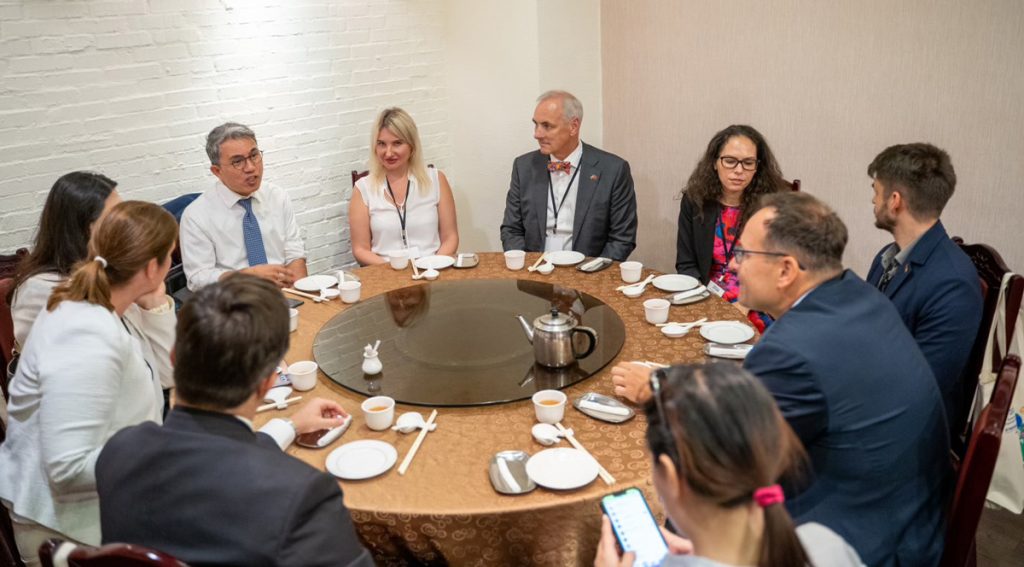
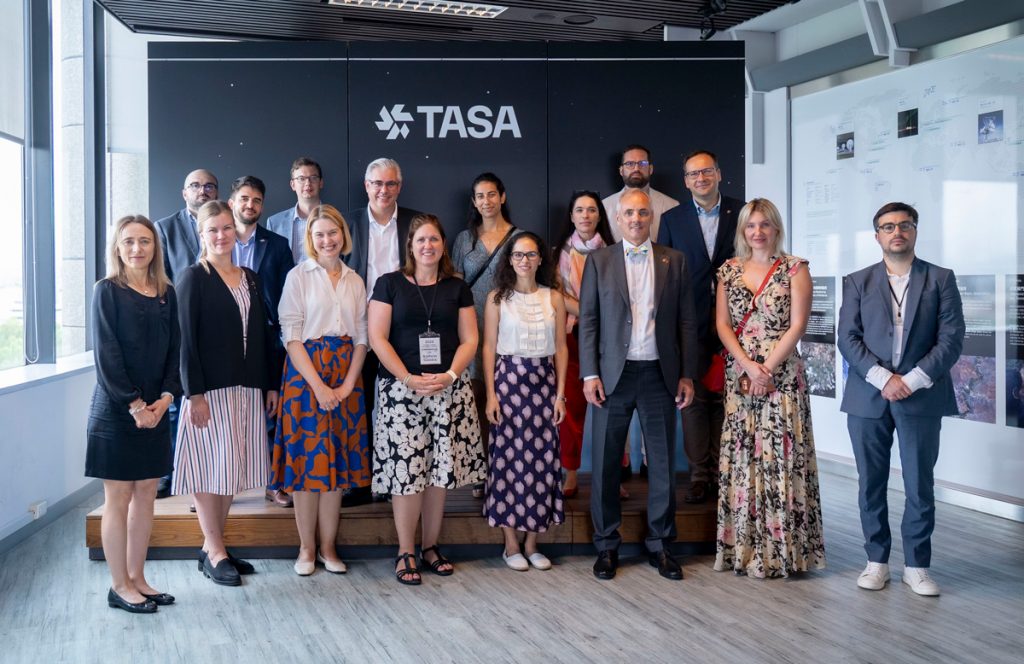
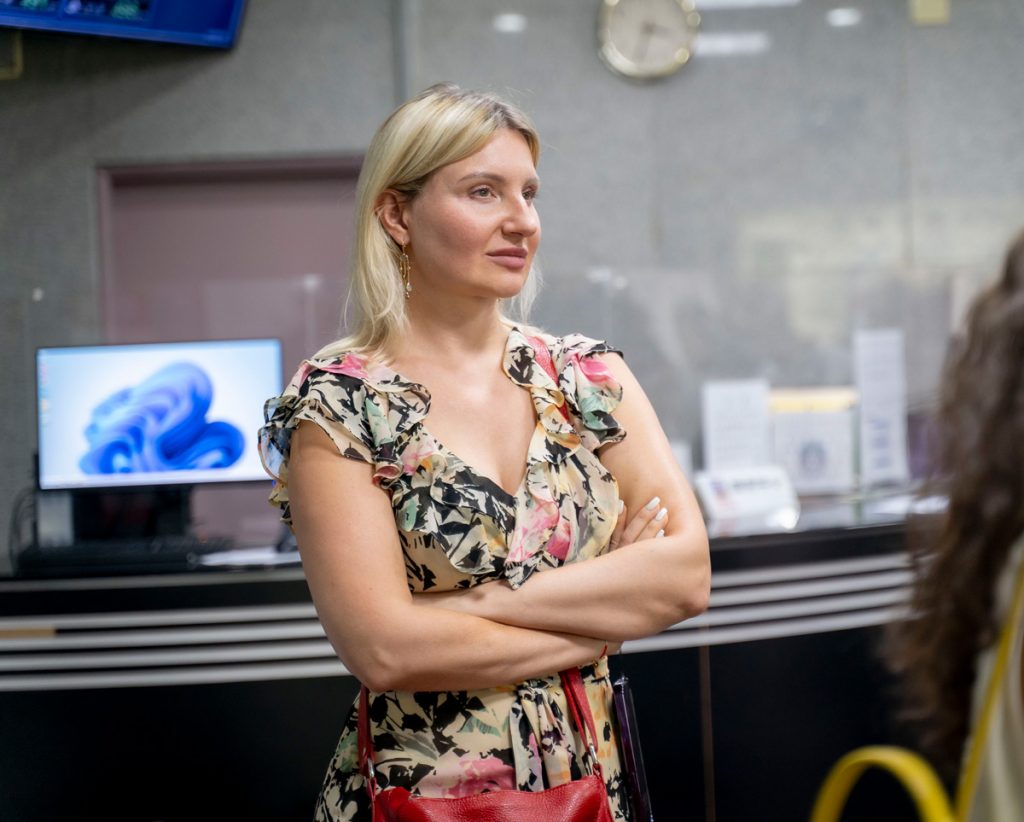
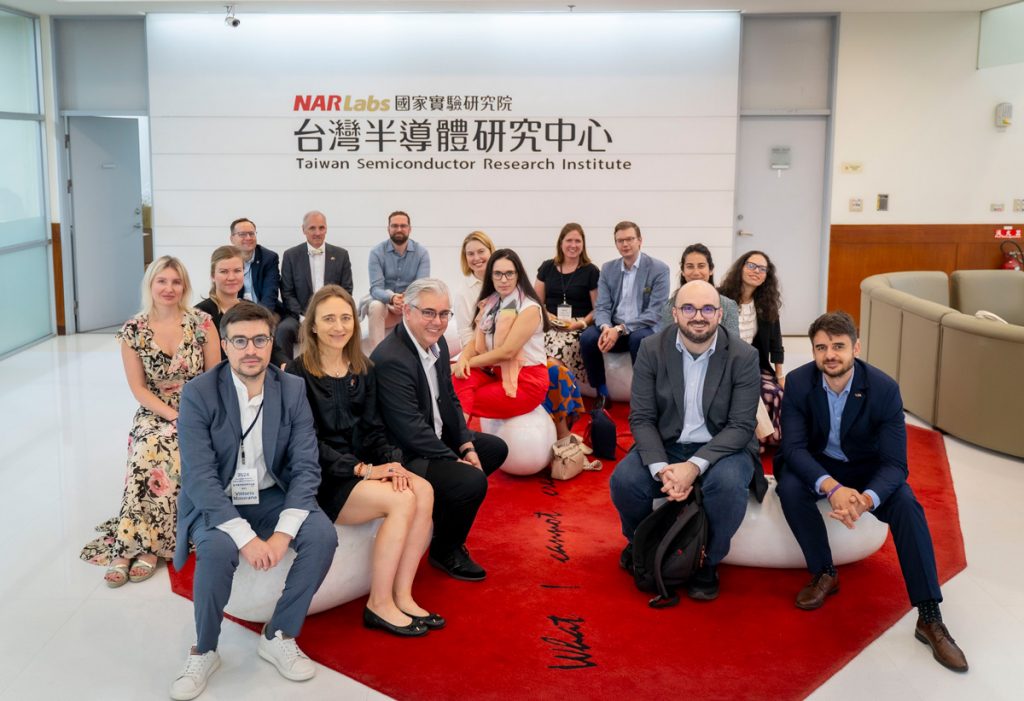
Shared Challenges: Aging Population and Labor Shortages
Taiwan and Ukraine share several internal challenges, one of the most pressing being demographic changes. Taiwan is experiencing a significant demographic shift, with an aging population that is expected to see 20% of its people over the age of 65 within the next five years. This aging population, coupled with one of the lowest birth rates in the world, has led to a severe labor shortage. For instance, the restaurants in Taiwan are half empty not because of the lack of customers but because of the lack of staff.
Taiwan’s semiconductor industry is the backbone of its economy and a pledge for its security. The whole education system is refocused to serve this sphere. At the same time, humanities lack students, and some faculties must have been closed.
The semiconductor industry in Taiwan is unique. It demands a work ethic characterized by long hours and high pressure. The Taiwanese hardworking spirit that accepts the lack of work-life balance secures the localization of the semiconductor industry in Taiwan.
Energy Dependency and National Security
Taiwan has no significant natural energy resources and relies heavily on imports, particularly from countries like Malaysia and Australia. This dependency makes Taiwan vulnerable to global energy market fluctuations and geopolitical pressures, particularly as it plans to phase out its nuclear power plants in 2025 due to public fears following the Fukushima disaster in Japan.
This energy dependency is a critical national security issue, as the semiconductor industry, which consumes a significant portion of Taiwan’s energy, is vital for both the economy and national defense. The potential closure of nuclear plants could lead to higher electricity costs, making Taiwan’s semiconductor products less competitive globally and possibly driving investors away.
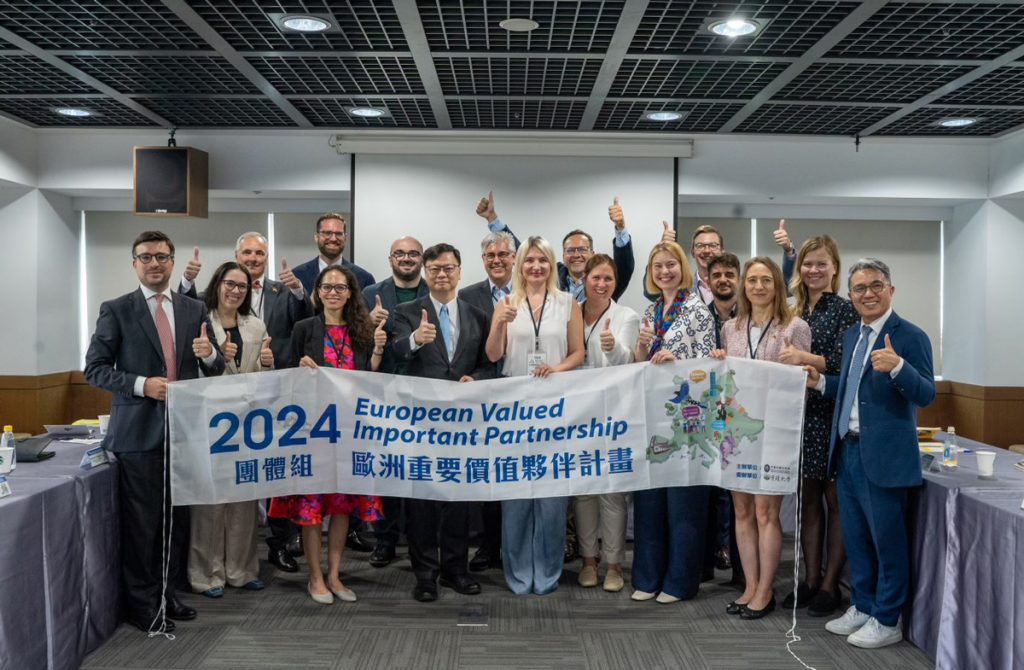
Marta Barandiy’s Visit and Its Implications
Marta Barandiy’s visit to Taiwan is critical for both nations. Taiwan has been a vocal supporter of Ukraine, with its government expressing solidarity with Ukraine and providing humanitarian aid. This support is part of a broader alignment of Taiwan with democratic nations worldwide, positioning itself as a defender of democratic values in the face of authoritarian threats.
During her visit to Taiwan, Marta Barandiy expressed her deep appreciation for Taiwan’s support of Ukraine. She visited the Institute of Diplomacy and International Affairs, the Institute for National Defense and Security Research, the National Development Council, the European Chamber of Commerce, Taipei 101, the Prospect Foundation, the Human Rights Museum, the Taiwan Semiconductor Research Institute, the Taiwan Space Agency, and many other institutions.
Marta Barandiy met with Vice Minister Ambassador Remus Li-Kuo Chen and other officials at the Ministry of Foreign Affairs. Their discussions centered on the importance of international solidarity and the role of public diplomacy in supporting nations like Taiwan and Ukraine that face significant external threats.
Li-Kuo Chen has been an advocate for Taiwan’s democratic values and international cooperation. Chen has been particularly vocal about the importance of international support for Taiwan in the face of potential threats from China, emphasizing that protecting Taiwan’s democracy is a matter of global significance.
Marta’s visit highlights the growing strategic alliance between Taiwan and Ukraine. Both nations are under pressure from more powerful neighbors—China and Russia, respectively—and both have turned to international partnerships to bolster their positions. Barandiy committed to incorporating Taiwan’s cause into the NGO Promote Ukraine and Promote Freedom Foundation’s strategy in the European Union and Belgium, recognizing the importance of mutual support in the face of common challenges.
Afterwords
Marta Barandiy’s visit to Taiwan underscores the importance of international alliances in today’s complex geopolitical environment. Taiwan and Ukraine, while geographically distant, share many challenges, from defending their sovereignty to managing demographic shifts and labor shortages. As Taiwan continues to navigate its precarious position in East Asia, the support of international allies like Ukraine will be crucial. Similarly, Ukraine can draw strength from Taiwan’s resilience and strategic use of soft power in the face of overwhelming odds.
#TeamMarta
Sources:
- The Diplomat. Taiwan’s Semiconductor Talent Shortage
- The Diplomat. Energy at the Crux of Australia-Taiwan Relations
- Taiwan News. Taiwan’s TSMC and other chipmakers facing labor shortage
- The Taipei Times. How semiconductor firms are tackling a talent shortage
- X. Marta Barandiy post
- Euro News. Protecting Taiwan’s democracy is ‘truly a life-and-death matter,’ warns Taipei’s envoy to the EU






 UA
UA FR
FR DE
DE